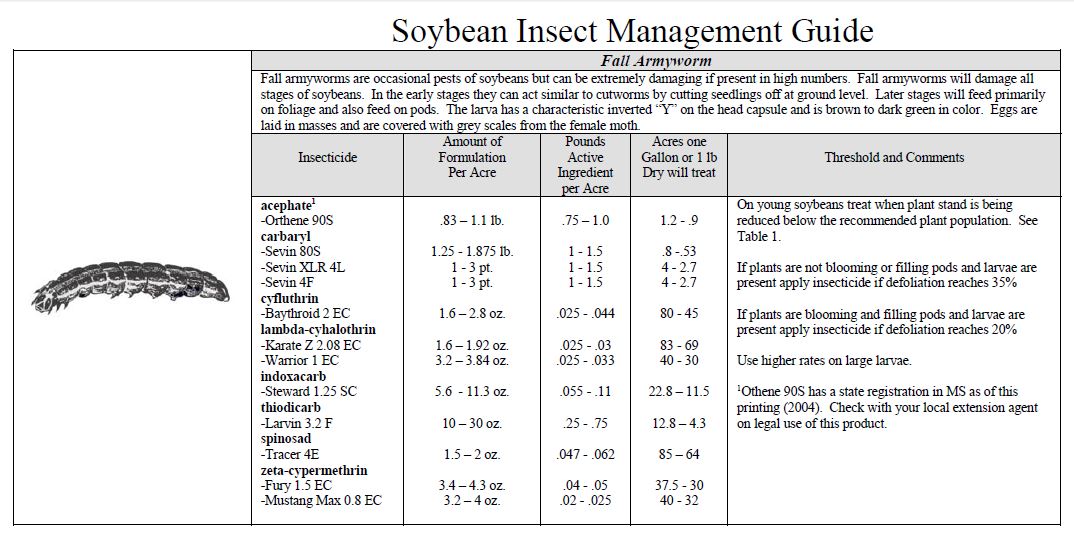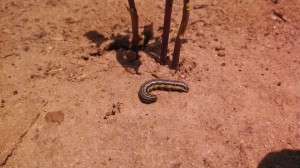Fall armyworms were found this week in a soybean field in Okaloosa County. This pest can completely defoliate a field in a week as was the case in the field pictured above.
Fall Armyworms overwinter in southern Florida and southern Texas. The moths or adult stage are strong fliers that disperse long distances across the Southeastern US over the summer.
Their life cycle includes egg, larva, pupa, and adult. The length of the life cycle depends on the time of year, from 30 days in the summer to 90 days in the winter. Each female moth lays up to 2000 eggs in her lifetime. Each egg mass is laid on foliage and contain 100-200 eggs. Eggs only take 2-3 days to hatch during the summer.
The larval (worm) stage is the most damaging to crops. Larvae consume a lot of foliage and grow quickly, especially in the summer months. The face of a mature larva will have a light colored inverted “Y”. This stage usually lasts 14 days in the summer. The larvae then spin a loose cocoon and pupate in the soil. In about 8-9 summer days, an adult moth will emerge. The adult moth then lives about 7-21 days, with the females laying eggs on favored food sources.
The fall armyworm has two host strains; one that feeds on corn, sorghum, and cotton, and one that feeds on turf, pasture grasses, and rice. Dr. Rob Meagher, USDA-ARS, wants to know which strain feeds on soybeans. Samples will be taken and DNA obtained.
Scouting is in order for late planted soybeans and hay fields. According to the Mississippi Soybean Insect Management Guide, treatment on young soybean plants should occur when the damage reduces the stand below the recommended plant population. This will require frequent walks through the fields to scout for damage and armyworms.

Fall Armyworm control from the Mississippi Soybean Insect Management Guide
For more information about fall armyworms:
Fall Armyworm EDIS publication
UF Entomology page on Fall Armyworm
ACES Fall Armyworm in Pastures and Hayfields
- Spray Drone Regulations - July 16, 2024
- 2023 WFREC Crop Variety Trial Results - February 2, 2024
- Hoof Care for Florida Horses - July 28, 2023


